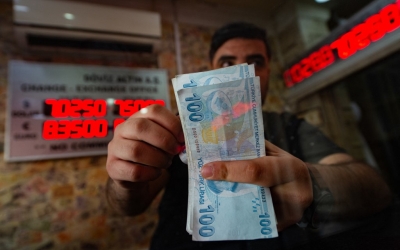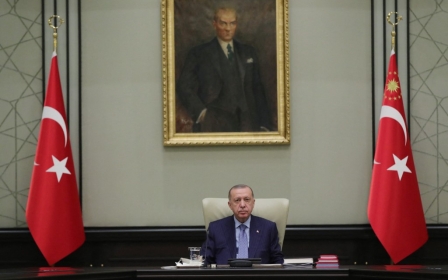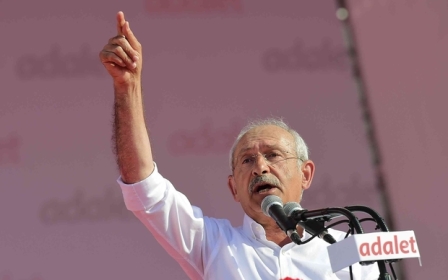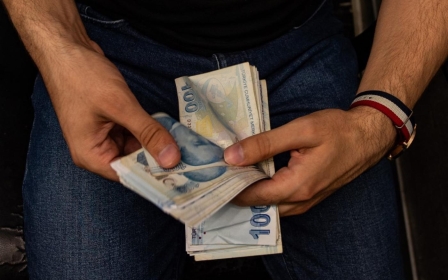Turkey: Lira's fall hits car sales
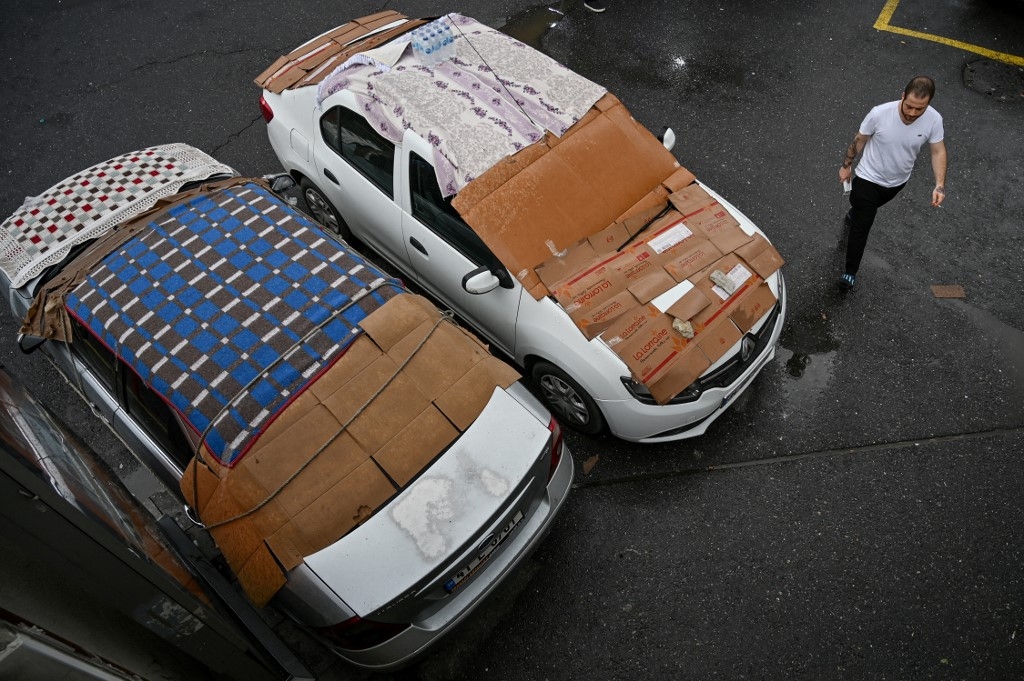
Turkey’s economic turmoil is affecting the automobile sector, with buyers having difficulties finding new and second-hand cars due to fluctuations in prices.
Some companies, such as French manufacturer Renault, temporarily stopped selling cars in the country last week because prices had to be repeatedly updated, as the Turkish lira posted a record-breaking devaluation against the US dollar almost every day.
Turkey is a production and engineering centre for the global automotive industry, ranked the 15th largest in the world, with an export volume reaching $30bn in 2019, before the Covid-19 pandemic.
Increasing car ownership has been a point of pride for Turkish President Recep Tayyip Erdogan, who regularly boasts that Turks now have at least one car per household.
On Monday, he said that his people's standard of living had reached the point where "even doormen" owned cars. “[Even] second-hand cars are not enough; how do you ignore this?” he said.
Yet buying a car has now become a tricky business for Turkish consumers, who now have to contend with the erosion of the lira leading to soaring prices for both second-hand and new vehicles.
The Turkish lira has lost 10 percent of its value against the dollar in the past month alone. With the Central Bank’s decision to cut rates and a diplomatic crisis that led Erdogan to threaten 10 western envoys with expulsion, this week saw the exchange rate stand at 9.75 lira per dollar - a six percent depreciation from the previous week, and a 25 percent drop since the start of the year.
Turkey was already among the countries with the highest automotive taxes in the world. Turks pay taxes for cars based on the engine cylinder volumes as well as production costs, which can amount to between 45 percent to 220 percent of the base price.
The drop in the lira has meant that the base price of most cars will rise - possibly changing their tax bracket and compounding the raise in prices.
“Importers are expected to hike car prices from November. This increase is estimated to be in the range of four to six percent. If it happens, it will be very difficult to find a vehicle in the [cheaper range],” Husamettin Yalcin, CEO of digital automotive data company CarData told Haberturk daily last week.
New car sales in September decreased by nearly 40 percent year-on-year according to statistics released by the Automotive Distributors Associations.
Decline in second-hand car sales
There is a soaring price problem in the used car sector, too, as second-hand cars have seen prices estimated to increase by as much as 5 percent - while the market is rapidly shrinking.
“The used car market... has decreased by 50 percent since last year, and this continues,” Erol Sahin, general manager of EBS Analyze Automotive Counselling, told Middle East Eye.
Second-hand car buyers point out that prices have rocketed in a matter of days, due to fluctuations.
“I did not want to waste time with the depreciation of the lira, and bought a Citroën C for 148,000 lira ($15,600)," said Baran Saruhan, who bought a used car last weekend. “The price of my car has increased by 5,000 lira ($527) in two days.”
Sahin said the used car market and the new car market were intertwined: when there is a price hike for a new vehicle, the second-hand market also sees a price increase the next day.
“In addition to the foreign exchange rate, inflation - which is nearing 20 percent annually - is the main dynamic that is shaping the prices in the used car sector,” he added.
The accelerated depreciation of the lira and the increase in inflation indicate that the upwards trend in Turkish car prices will continue, making it harder for Turks to purchase cars in the near future.
Middle East Eye propose une couverture et une analyse indépendantes et incomparables du Moyen-Orient, de l’Afrique du Nord et d’autres régions du monde. Pour en savoir plus sur la reprise de ce contenu et les frais qui s’appliquent, veuillez remplir ce formulaire [en anglais]. Pour en savoir plus sur MEE, cliquez ici [en anglais].


